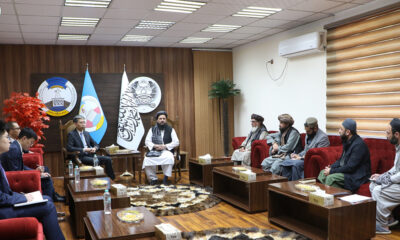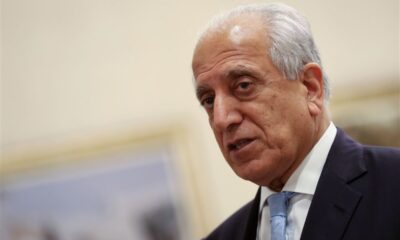Business
Afghanistan’s economic prospects are bleak: World Bank

The absence of GDP growth coupled with declining external financing avenues for off-budget expenditures paint a bleak picture of Afghanistan’s economic prospects, the World Bank said.
After a severe 20.7 percent GDP contraction in 2021, the Afghan economy contracted further by 6.2 percent in 2022, the bank said in a report.
“While Afghanistan’s agricultural and subsistence economy, including illicit opium production, provided some resilience in rural areas, higher prices, reduced demand, lower employment, and disruptions to services had severe impacts across the country,” it said.
The proportion of households that did not have enough income to meet basic food needs more than doubled from 16 percent to 36 percent in this period, according to the bank.
In the context of deep concerns about the policies of the Islamic Emirate of Afghanistan (IEA), including restrictions imposed on women and girls, the international community, including the World Bank, recalibrated its approach to supporting Afghanistan: first to providing humanitarian support and then to providing off-budget support for basic service delivery and livelihoods.
However, IEA moved to restore domestic revenues, which reached $2.2 billion or 15 percent of GDP in 2022. “Nevertheless, overall economic activity remained depressed, unemployment stayed high, and the banking sector was dysfunctional due to constraints on international transfers and concerns about liquidity and solvency.”
World Bank said that Afghanistan’s economic outlook remains uncertain, with the threat of stagnation looming large until at least 2025. “This economic stagnation will deepen poverty and unemployment, with job opportunities expected to decrease and food insecurity expected to increase.”
The bank noted that for a sustainable future, Afghanistan needs to focus on its comparative advantages, particularly in the agricultural and extractive sectors. Agriculture could be a key driver of growth and poverty reduction, with the potential to create jobs, it added.
Business
Aziz discusses trade issues while on visit to Iran
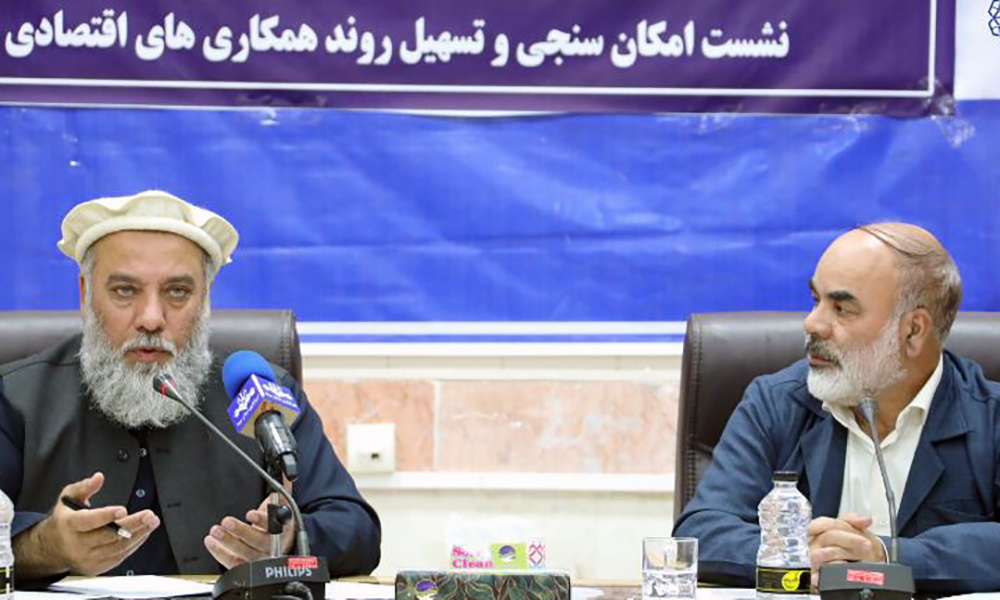
Acting Minister of Commerce and Industry of the Islamic Emirate of Afghanistan Nooruddin Azizi arrived in Iran’s Sistan and Baluchistan Province on Thursday for a meeting on facilitating the process of economic cooperation between the two countries.
The ministry’s spokesman Abdulsalam Javadakhandzadaa said Thursday the minister discussed the development of trade and transit relations between Iran and Afghanistan – but with the focus on the province of Sistan and Baluchistan.
Aziz also discussed the need to strengthen processes for goods through Chabahar port and emphasized the need to resolve issues relating to this trade route.
According to Javadakhandzadaa officials of the two countries discussed the strengthening of commercial and economic cooperation, while Azizi requested that costs be lowered for goods and for land to be made available in Chabahar to Afghan businessmen and for railway facilities to be provided.
Both sides agreed that in order to develop trade between the two countries and to strengthen transit through Chabahar, a joint technical committee would be established on a provincial level and that issues will be followed up by the central committee.
Business
More trade contracts signed between Uzbekistan and Afghanistan
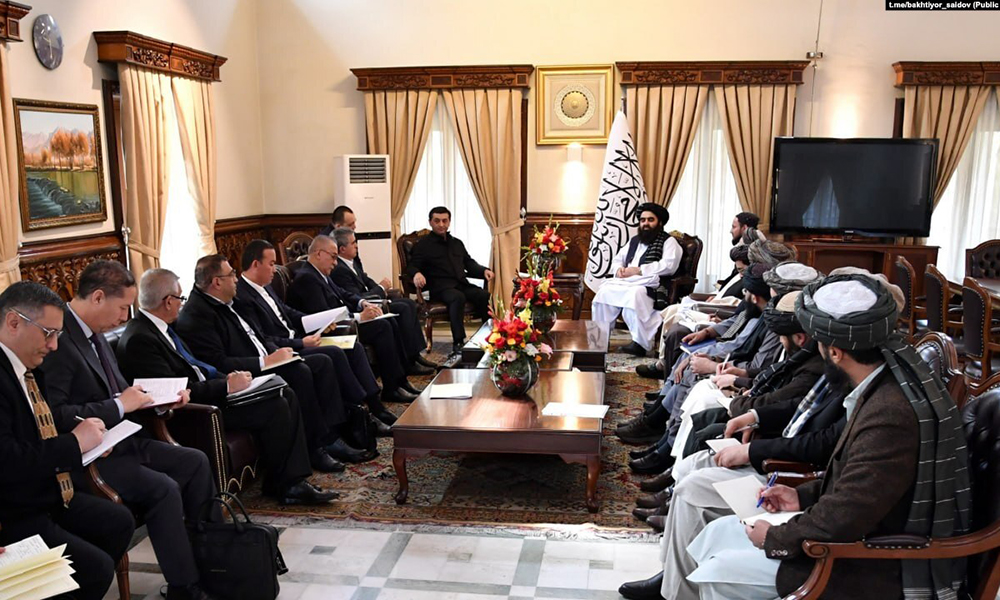
Uzbekistan has agreed to sign export contracts worth $44 million with Afghanistan, according to a report by the Chamber of Commerce and Industry of Uzbekistan.
The contracts were signed during a three-day visit to Tashkent by a delegation of Afghan businessmen.
The two nations are also planning to form an Uzbekistan-Afghanistan Business Council, which will have 18 Afghan companies among its members.
Afghanistan’s import market is worth $7 billion. The goods that are most in demand with Afghan importers are agricultural products, processed food, textiles, leather, electrical components and construction materials.
Business
Turkmenistan makes ‘significant progress’ on TAPI pipeline project
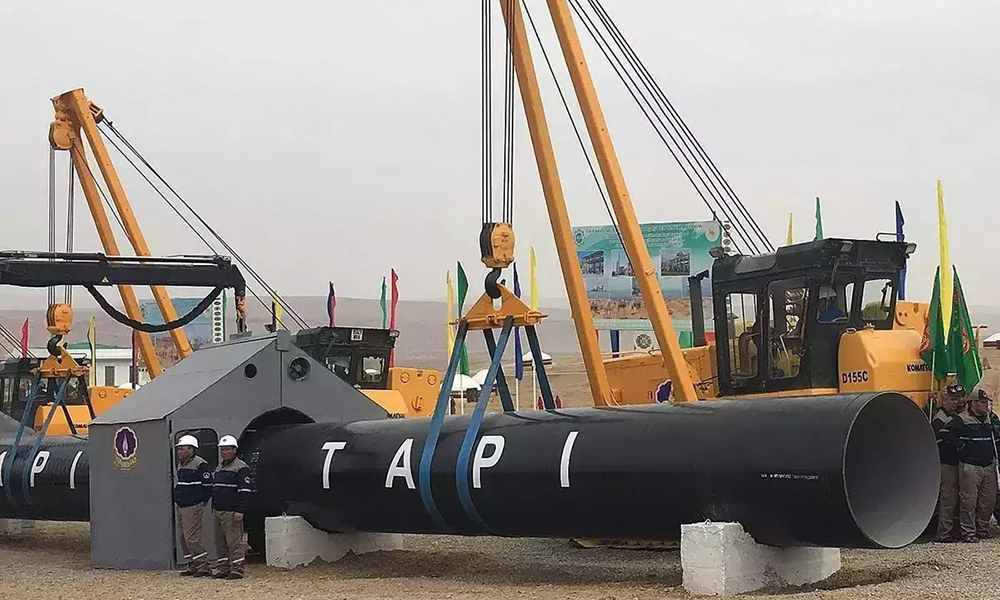
Turkmenistan has made “significant progress” on the Turkmenistan-Afghanistan-Pakistan-India (TAPI) gas pipeline project, said TAPI Pipeline Company Limited CEO Muhammetmyrat Amanov.
“Turkmenistan is making significant progress on the TAPI natural gas pipeline, which will supply 33 billion cubic meters to South Asia annually,” he said.
Speaking at the Turkmen Energy Investment Forum (TEIF 2024) currently being held in Paris, Amanov highlighted that Turkmenistan’s section of the pipeline had been completed and ongoing discussions to advance the project beyond Turkmenistan were in strict alignment with the international standards.
He said the project envisaged environmental sustainability by leveraging natural gas to reduce emissions significantly compared to coal and oil, thereby tackling indoor pollution and enhancing regional air quality.
“In light of the ongoing project developments, Turkmenistan remains committed to upholding the international law, fulfilling its obligations and adhering to international norms and regulations,” he said.
This approach reaffirms Turkmenistan’s dedication to global cooperation and legal integrity in executing the TAPI project.
Looking ahead, the project’s focus is shifting to the Herat Offtake Strategy in Afghanistan, which will play a critical role in environmental protection by reducing air pollution, while also contributing to maintaining public safety, he said.
-

 Sport2 days ago
Sport2 days agoAfghanistan announce T20 World Cup 2024 squad
-

 Sport4 days ago
Sport4 days agoKohli slams strike-rate talk and pundits ‘from the box’
-

 World4 days ago
World4 days agoBlinken arrives in Saudi Arabia to discuss Israel normalization, post-war Gaza
-
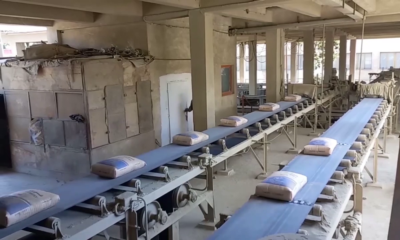
 Latest News5 days ago
Latest News5 days agoGhori State Cement in Baghlan increases production
-

 Regional4 days ago
Regional4 days agoDubai ruler approves new $35 billion airport terminal
-

 Health4 days ago
Health4 days agoNationwide polio vaccination campaign kicks off across Afghanistan
-

 Sport2 days ago
Sport2 days agoNew Zealand to go ahead with Afghanistan cricket Test
-

 Science & Technology4 days ago
Science & Technology4 days agoMercedes Benz unveils electric G-class at Beijing Auto Show


